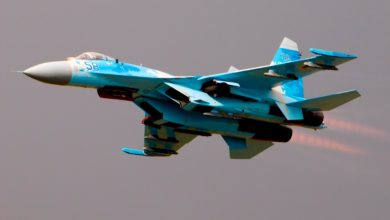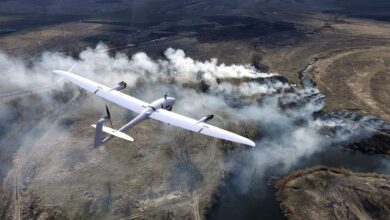
Vladimir Putin has painted himself in a corner, and that could be bad for the world. If the disintegration of his army continues and his partial mobilization of Russian reserves cannot staunch the bleeding, he has threatened to use tactical nuclear weapons to stop Ukrainian advances.
At that point, the risk of wider nuclear war becomes a real possibility; even if extended nuclear combat does not occur, the damage to the environment caused by limited nuclear strikes would far overshadow the current debate over global warming.
Consequently, it becomes imperative that the civilized world — not just the United States — acts forcefully to ensure that using tactical nuclear weapons does not become normalized by making sure that any Russian first use does not go unanswered.
Any nuclear retaliation by the United States to initiate battlefield nukes by Moscow would serve to normalize tactical nuclear use in wars.
Nuclear Threshold
What then can be done? The question is twofold. First, how can the rest of the world avoid allowing Putin to be put in a situation where he feels he has no option but to try nukes? Second, how does the rest of the world — led by the US — respond to any use if it occurs without resorting to nuclear retaliation?
This question is critical because other nuclear states such as India, Pakistan, and North Korea will be watching carefully, as will Iran as it pursues such weapons.
Consequently, the argument is that Russia and the US set a precedent that will lower the nuclear threshold immensely.

The first question is wicked because Washington cannot play a leading role in any negotiations in the Russo-Ukrainian war. Rightly or wrongly, Putin sees the US and the rest of the West as part of the problem.
Several non-western nations, including Israel, Turkey, and India, have offered to act as intermediaries. If some combination of the above can offer a package that would save Russian face while ensuring the sovereignty of Ukraine, it might buy some time for Putin to cool down the hardliners in Moscow and work toward a long-term solution.
Getting the Ukrainians to go along with such an agreement will make the problem even more complicated because they now smell blood as Russia’s soldiers increasingly prove themselves inept and unwilling.
Referendums
Russia is holding sham elections in territory it now occupies, but there are pockets that would vote to go with Russia even if elections were free and fair. Even if the Ukrainians overrun them, the seeds for ongoing insurgency will be sewn for years to come and will be a cancer on the Ukrainian body politic.
An agreement that allows for UN-supervised referendums in the disputed regions, including Crimea, would give both Putin and Volodymyr Zelensky an out.
The districts that vote to join Russia could be given the choice of remaining autonomous or joining the Russian Federation. Those wanting to remain Ukrainian would do so.

In an UN-supervised referendum, any votes coerced by armed thugs would be discounted, and only votes at UN-monitored polling places would be counted. This is particularly important in the case of Crimea, where the Russians actually have a case.
Until the 1917 Russian Revolution, Crimea was a Russian possession; the Crimean war was fought to keep it that way. The rulers of the former Soviet Union gave it to Ukraine as an administrative adjustment, never foreseeing the collapse of the whole Soviet Union edifice.
In Putin’s case, he could claim that his “Special Military Operation” had achieved its purpose in protecting Russian speakers in the disputed territories. Zelensky could claim that the dispute had been settled democratically.
Hardliners on both sides would be unhappy, but controllably so. The United States can be supportive and help fund elections, but we should have no direct role.
Tactical Nukes
If Russia resorts to tactical nukes, Washington must get involved. We may no longer be the world’s policeman, but we are the global marshal. In existential situations, the rest of the democracies (and semi-democracies) expect us to form the posse.
If nuclear warfare is not existential, nothing is. “America firsters” will argue against any involvement, but nuclear fallout does not respect borders or neutrality.
President Biden made a good start in this recent 60 Minutes interview when he put Putin on notice that serious consequences would follow any Russian nuclear use, but that only covers the US position.
America should act now to form an ad hoc coalition, including NATO and the Pacific democracies, in vowing overwhelming conventional strikes against the launch sites and supporting facilities used in any nuclear strike.
These should include command and control installations and continued strikes against further reinforcement of such sites. This would give Putin unequivocal notice that the bad behavior does not give the using power an operational or strategic advantage.
In addition, in the event of nuclear use by Moscow, action should be taken to threaten to strip Russia of its seat on the UN Security Council as a rogue state until it renounces the use of nuclear weapons for tactical or operational purposes.
Such actions to discourage Russian nuclear escalation should be taken immediately to be effective.
The collapse of Russian forces on the eastern and southern fronts does not appear to be imminent, but panic is contagious; throwing in thousands of out-of-shape and reluctant reservists may actually make the situation worse and force Putin’s nuclear hand.
 Gary Anderson was a senior member of the Defense Adaptive Red Team and a Special Advisor to the Deputy Secretary of Defense.
Gary Anderson was a senior member of the Defense Adaptive Red Team and a Special Advisor to the Deputy Secretary of Defense.
He lectures on Wargaming and Alternative Analysis at the George Washington University’s Elliott School of International Affairs.
The views and opinions expressed here are those of the author and do not necessarily reflect the editorial position of The Defense Post.
The Defense Post aims to publish a wide range of high-quality opinion and analysis from a diverse array of people – do you want to send us yours? Click here to submit an op-ed.











